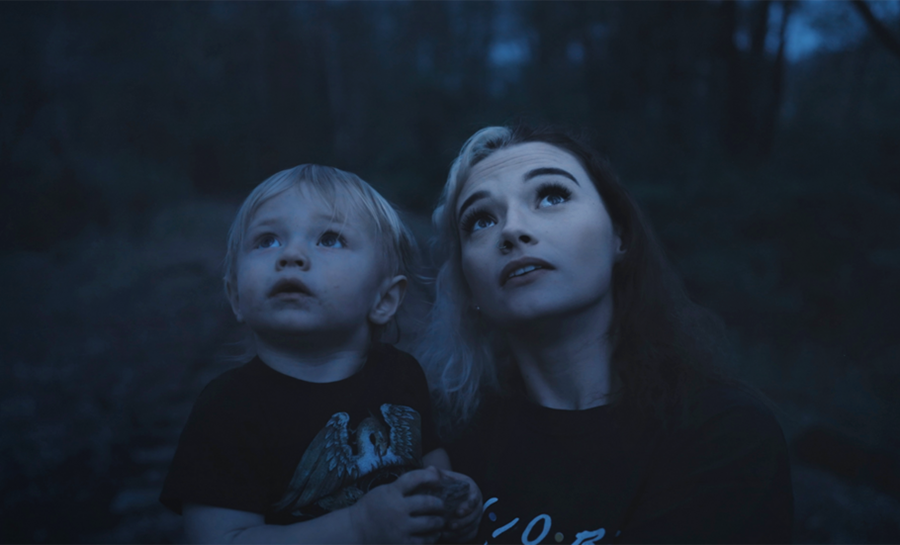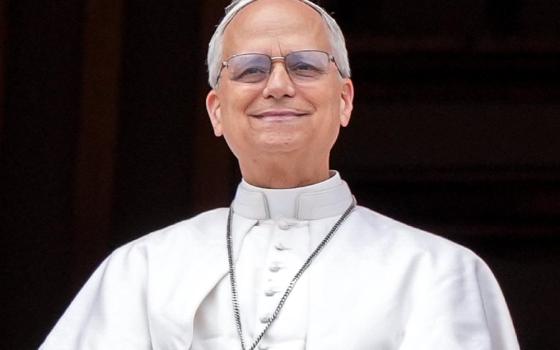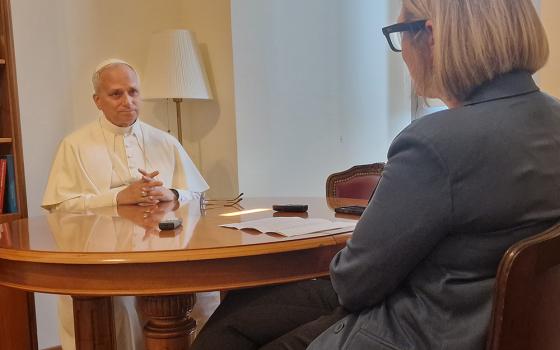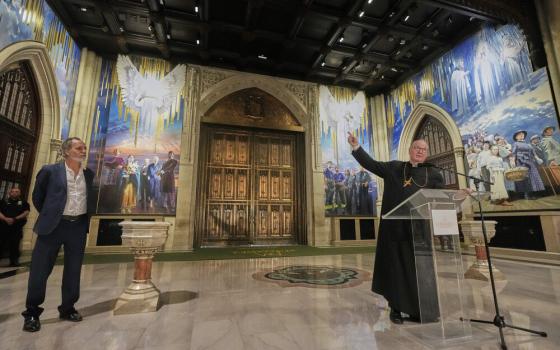
The documentary "The End of Quiet," which premiered recently at the Tribeca Film Festival, surreptitiously creates a portrait of Americans as dangerously self-isolated. (Courtesy of Tribeca)
In a world increasingly consumed by the noise of social media and a 24/7 news cycle, the premise of the documentary "The End of Quiet" sounds like it might be a balm for the soul: a small community forced by its proximity to a massive radio dish to live without any technology created after 1990.
And yet from the start, the people of "Quiet," which debuted recently at the Tribeca Film Festival, do not seem to share in this fantasy of an oasis of peace. And rather than painting a portrait of a strange, isolated community in America, the film surreptitiously creates a portrait of Americans as ourselves strange and dangerously self-isolated.
"Quiet" opens with a young couple wandering alone outdoors somewhere, talking. Their names are not given, nor are we offered any narration or sense of context. Throughout the film, we are only meant to watch and learn. Soon we're meeting others, each of whom lives in their own separate little world: a middle-aged woman, here because she believes the radiation from modern technology is making her ill; a grandfather, bonding with his granddaughter by firing off guns, each shot more unsettling in the silence.
There is a certain idyllic quality to the world around them. The birdsong captured by filmmakers Kasper Bisgaard and Mikael Lypinski has a sweetly musical quality. When thunder rolls in, the cloud forms are majestic. The property of the woman alone opens onto a cluster of trees that glow in the setting sun. But none of the characters seem to notice any of this. The young people at the start complain about being bored, the middle-aged woman is lonely and misses her husband, and everyone, for some reason, keeps talking about extraterrestrials.
Supposedly, these people all live in a community. But they are only shown alone in otherwise empty landscapes. Even the scientist, who constantly worries about how much longer the dish will be able to pick up signals amid ever-encroaching technology, seems to be the only one working in the dish's facility.
But then, halfway through "Quiet," we suddenly leap ahead three years and things have changed. Having talked extensively about wanting to have her boyfriend's baby, the young woman now has a child with him. But he spends little time with them, and says next to nothing. Meanwhile the grandfather now believes that some kind of civil war is imminent, and spends his time practicing pulling his gun and targeting imagined foes. He also confides that the science facility is clearly hiding evidence of alien life. Nothing has changed either for the lonely woman or the scientist. He still worries endlessly about missing signals from space. She still wishes her husband would visit.
In effect, each person is lost in a narrative of their own creation, and to their great detriment. At one point the granddaughter tells her grandfather that she doesn't want to practice leaping out of his truck and firing on would-be attackers. Having been so lovely with her up until now, he suddenly erupts, telling her to "get out of my [expletive] truck" and calling her a whiner. "You're not the [expletive] boss," she shouts at him. "You're my grandpa." For two people who spend most of their time onscreen firing guns and causing explosions, it's telling that their argument is by far the film's most shocking and upsetting moment.
Advertisement
The granddaughter, whose name we learn is Brionna — the film almost never reveals any of its subjects' names, a move that only increases the story's sense of disconnection, but perhaps also its universality — seems to be the only person in the film who resists the narrowness of her peers. She is the only character who we see interacting with any of the others. But talking to the young mother, she dismisses the idea of ever leaving this town. If she were hurt here, she posits, she knows people would take care of her. But out there, who knows? Ultimately the world beyond her borders appears dangerous to her, too.
None of these people seem to realize how trapped they are, or how strange their lives have become. Even the scientist, who we take at first as the voice of reason, seems by the end kind of an oddball, with nothing in his life beyond this concern to protect the airwaves, his fear that we're going to miss our chance to make contact with another civilization. "The world is getting worse," the grandfather tells Bisgaard and Lypinski.
It would be easy to dismiss them. Except aren't we, on the left or right, saying and doing a lot of the same things?
But in "The End of Quiet" it's the people who have gotten worse, because of the silos they are choosing to live within. Their group obsession with the possibility of life on other planets is a cry for help from within themselves. They are surrounded by other lives that they can't see or hear through all the noise on their own bandwidths.
It would be easy to dismiss them. Except aren't we, on the left or right, saying and doing a lot of the same things — bemoaning the state of the world, seeking shelters or communities where we are protected, imagining a violent future? Is anyone keeping themselves open to other possibilities? Is anyone listening? The question of "The End of Quiet" is less about what the characters' isolation is doing to them, and more about what our own silos might be doing to us.







